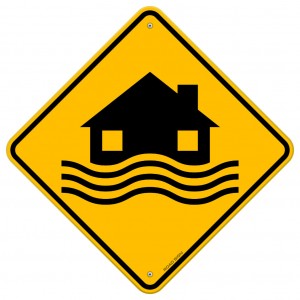3 Ways Water Ruins Your Chimney
Fire and water don’t mix particularly well — and your fireplace/chimney system and water aren’t the best friends, either. While there are a lot of things that can cause trouble in your chimney — from excess creosote in a flue that’s overdue for sweeping to blockages from nesting animals that got in because of a missing chimney cap — the most consistent and persistent enemy your system has is moisture.

You’ll find everything you need to keep your chimney and fireplace system in top working order with our professional chimney services. Chim Cheree is committed to quality work that helps keep you and your family safe.
Moisture is particularly troubling because it’s able to exploit even the smallest imperfections and, over time, turn small problems into big ones. That’s a big part of why chimney technicians like Chim Cheree’s put so much effort into preventing moisture intrusion, from applying chimney waterproofing sealant to installing strong and durable chimney caps. Want a little more info about how moisture can cause chimney headaches? Here are three ways water can ruin (or at least cause serious problems in) your chimney.
Degrading Brick, Eroding Mortar Joints
A lot of moisture’s negative effects come with time. Year after year, rainstorm after rainstorm, water will steadily wear at your masonry chimney, weakening your bricks and the mortar joints that hold them together. Without attention, that can lead to chimney leaks, spalling (flaking or crumbling) masonry and, eventually, serious chimney restoration work. Chimney waterproofing can make a big difference in prevention masonry erosion — the specially formulated sealant we apply not only keeps excess moisture from being absorbed, it protects your masonry against the effects of moisture long-term, so you’ll get a longer service life out of your chimney.
Freeze And Thaw
When we talk about how moisture exploits even the smallest imperfection in your masonry, the freeze/thaw cycle always works as a good example. If a tiny crack was present in your chimney crown, moisture might make its way inside and stay there as temperatures dropped into the evening. Once temperatures drop below freezing, that water turns into ice and expands inside the crack, pushing against the masonry around it, causing bigger cracks and/or spalling — which can go from flaking to damage akin to the masonry bursting from the inside out. At Chim Cheree Chimney Specialists, we do all we can to take care of small imperfections in your chimney system while they’re still small, before the freeze and thaw cycle can cause serious damage. You can help us by consistently scheduling your annual chimney inspections, and calling us if you notice cracks or discoloration in between inspections.
Corrosion And Rust
Even if you have a masonry chimney, your system isn’t all masonry — a number of components, particularly the ones helping to keep water out of your system, are made out of metal. That includes your chimney cap, chimney flashing, chimney chase cover (if you have a pre-fabricated system) and often your throat damper, too. Depending on the type of metal those components are made of, they can be susceptible to rust and corrosion. A rusted and corroded chimney chase cover quickly leads to a chimney leak. A rusted throat damper can break or become stuck. None of these are optimal situations. Rusted and corroded parts need to be replaced, and with replacements, we can also help you avoid the return of that situation, by showing you some more durable products made with stainless steel or copper.
Protecting your chimney system against water is a key part of what we do at Chim Cheree Chimney Specialists. If you have any questions — or you want to make an appointment with our CSIA-certified technicians — give us a call!
